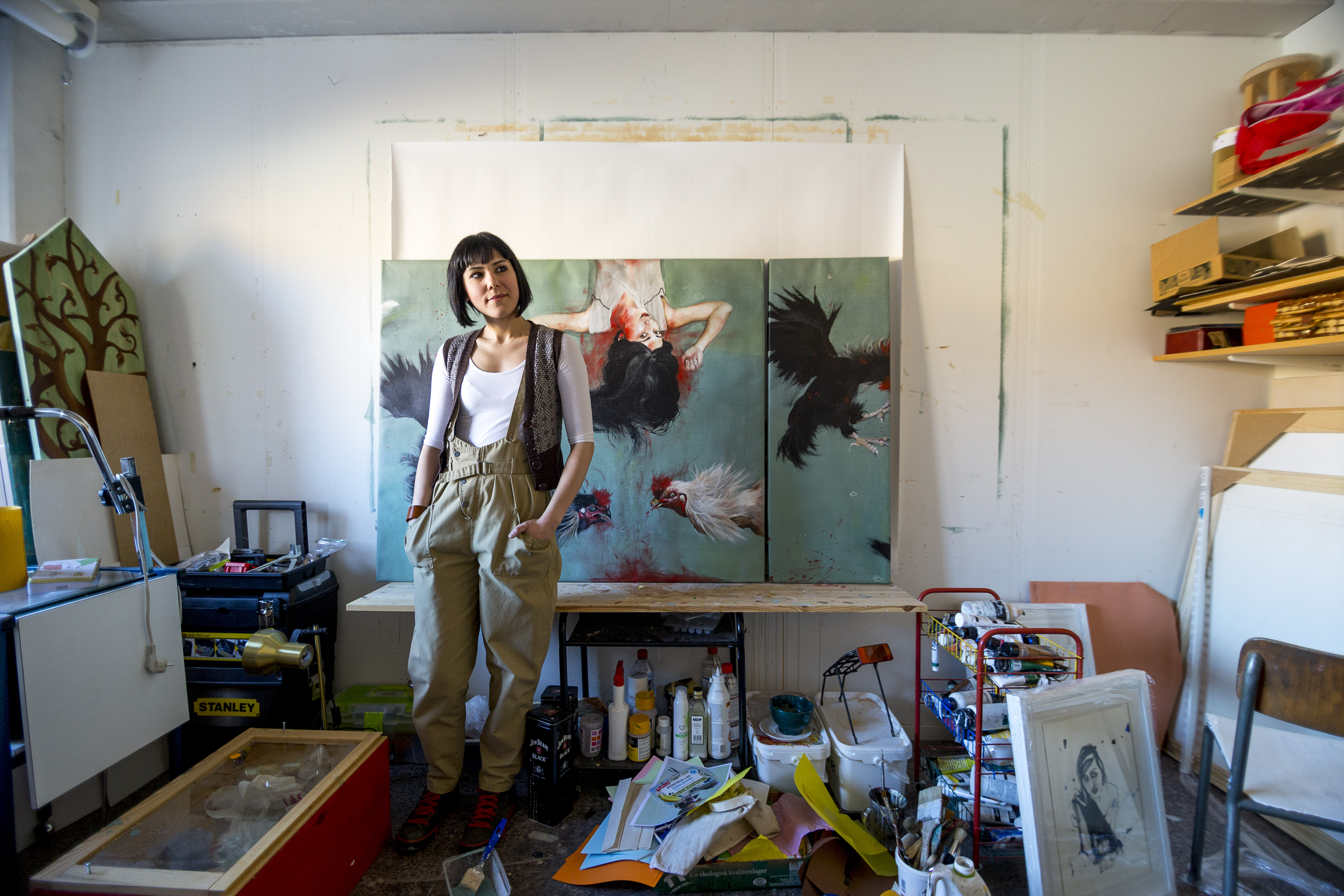 Photo: Peter Modin
Photo: Peter ModinDoctor, engineer. At least architect. The setting is Sari, an Iranian town near the Caspian Sea, in the late 1990s. Hasti Radpour is a talented and clever student. Her extended family have plenty of suggestions for what career she should choose – something highly regarded, of course.
“Medicine and engineering didn’t appeal to me. I applied to architecture school and was offered a place there.” But something didn’t feel right. Hasti’s true passion had always been painting. Before she accepted the offer from architecture school, Hasti consulted her cousin Farhad – today a musician in the United States. His advice: “Don’t waste your life.”
Hasti broke the news to her family that she was moving to Tehran, to study at the Tehran University of Art.
“At home it was almost like war. But I followed my heart.”
Fast-forward seven years to Hasti’s graduation exhibit at Tehran University of Art. Her teachers advise her and her classmates to take care with art that conveys sensitive or political messages. In the end, some works had to be displayed in a separate room. Today almost all of Hasti’s classmates have left Iran.
“I cannot accept oppression - and women face oppression in all countries.”
Growing up and studying art in Iran gave Hasti an appreciation of the rich imagery and symbolism of the Persian culture. This is still evident in her art, despite many years’ absence from Iran.
“Swedes have trouble relating to my figurative paintings, but I can’t suddenly become European. Earlier I painted lots of animals. For instance, for me birds symbolise freedom. Nowadays I paint more people.”
In 2007 Hasti took another huge step: she moved to Sweden. First was a year learning Swedish, then a BA in Design and Crafts at Linköping University. Today Hasti is well established on the Linköping art scene. From her artistic command centre – her studio in the Alka Artist Cooperative – she continues to fight oppression. But she’s also very much involved in the broader community. As well as practising as an artist, Hasti teaches art and hosts workshops, for both children and adults.
“Today my home is here in Linköping. For me the most important thing is to live where I can be an artist.”